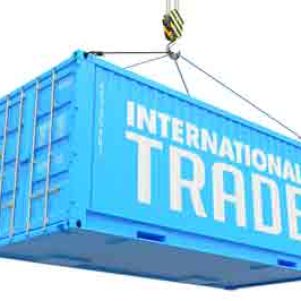The regulation in defence of competition in Spain is formed in light of Law 15/2007, of July 3, of the Defence of Competition, which promotes a substantial reformation of the Spanish system of the defence of competition, and by which the National Commission of Competition is created. The development of this regulation was necessary after the Law in Defence of Competition of September 1, 2007, became effective. The Law deals with several substantive issues about the procedure, emphasizing above all the Clemency Program, which consists of a system of exemption and reduction of fines on those companies that collaborate in the fight against cartels.
Introduction
The Royal Decree 261/2008, of February 22, which became effective February 28, 2008, develops substantive and procedural questions contained in the Law 15/2007, of July 3, in Defence of Competition (LDC). One of the questions that is most emphasized is that which refers to the clemency program.
This clemency program, or system of exemption and reduction of infractions of fines, allows companies or physical persons who participate in a cartel to solicit an exemption of payment of a fine when they provide elements of proof that permit the National Commission of Competition (NCC) to begin the development of an inspection concerning the cartel, or to prove an infraction of the LDC. Also under this program, such participants can solicit a reduction of the fine when they provide elements of proof that have an added significance to those elements of proof that the NCC already has obtained.
To guarantee the necessary confidentiality in the processing of the applications to participate in the clemency program, the Regulation requires the maintenance of confidentiality in the presentation of the application for exemption or reduction of the fine. Such maintenance of confidentiality entails the necessary cooperation of the applicant with the NCC from the moment that the application is presented and throughout the entire procedure. The application must facilitate all of the information and elements of proof to which the applicant has access, and abstain from destroying, falsifying, or concealing information or pertinent elements of proof related to the cartel; neither should the fact that the application has been presented nor its content be divulged. In addition, the applicant must put an end to its involvement in the cartel immediately after presenting the application. The applicant does not have to establish such an end in those cases in which the NCC believes such participation must continue to preserve the efficiency of an inspection.
Cartels consist of very harmful practices for competition. They may lead to very serious infractions as outlined in the LDC. Such practices may be sanctioned with fines of up to 10% of the volume of the total business of the violating company in the fiscal year immediately before the imposition of a fine.
Other legal issues developed in the Regulation that deserve to be mentioned are the following: those issues that refer to conduct of less importance, those substantive questions of control in economic concentrations, the functions of the NCC regarding the public support and promotion of competition, both of which are reinforced by the LDC, and collaboration mechanisms regarding investigation powers of the NCC with its authorities of competition of the autonomous communities in part, and with the European Commission, and the national authorities of competition of the members states of the European Union.
Finally, the Regulation includes three annexes referring to the content of the reports and those ordinary and abbreviated notification forms of the economic concentrations.
Defence of Competition
The Regulation is structured into two main parts (titles). The first of these, on the Defence of Competition, develops the substantive questions about the defence of competition norms within the LDC. This first section specifically discusses the aspects related to conduct of less importance, economic concentrations, public support, and the promotion of competition, in articles 1 through 10 of the Royal Decree 261/2008.
In the first chapter (articles 1 through 3), article 5 of the Law 15/2007, of July 3, is developed, relating to the conduct of less importance, determining the criteria for the definition of such conduct. Nevertheless, bearing in mind the practice and experience that are obtained in this respect, and the communications of the European Commission in this material, the NCC will be able to produce a communication to clarify such criteria.
The following are understood to have less importance, for which a prior declaration is not necessary:
- The conduct among competing companies, real or potential, when their whole market quota does not exceed more than 10% in any of the relevant markets affected.
- The conduct among companies that do not compete with each other, neither real nor potential, when the market quota of each does not exceed more than 15% in any of the relevant markets affected.
- In those cases in which it is not possible to determine if the conduct is between competing companies or non-competing companies, a percentage of 10% will be applied in each of those relevant markets affected.
- When, in a market of reference, the competition is seen as restricted because of the accumulated effects of parallel agreements to sell goods or services concluded by different suppliers or distributors, the percentages of the market quota stated in the previous sections will be reduced to 5%. The existence of an accumulated effect will not be appreciated if less than 30% of the market of reference is covered by parallel networks of agreements.
Economic Concentrations
The second chapter (articles 4 to 6), relating to economic concentrations, explains the contents of Law 15/2007, of July 3, concerning those thresholds of notification about the calculation of the market quota and of the volume of business and assessment of the efficient economies derived from the operation of concentration.
The treatment of economic concentrations in Spain has changed in some measures concerning the approval of the new LDC. The most distinguished change is the loss of the prominence of the Government in controlling the concentrations, now that it is the NCC that is the authority that will adopt the principal part of the decisions, and the Ministers’ Council will have marginal participation because of the public interest; in the material on the defence of the competition, the NCC will ultimately have the final word. From now on, the decision about any concentration (including the decision to approve the concentration in the first phase) corresponds to the NCC, and the Government will only be able to intervene to approve a concentration, with or without conditions, for reasons in favour of the public interest when the NCC has prohibited or approved conditionally. In addition, the LDC establishes the criteria for assessment of the NCC and of the Government, even though such criteria are not presented in an exhaustive format. The LDC also sets out the treatment of business efficiency derived from operations.
Regarding those thresholds of notification, the market threshold quota increases up to 30%, and a mechanism to update the volume of sales is introduced. The Regulation points out that the volume of global business in Spain is equal to the sale of products and providing of services (that correspond to the ordinary activities of the companies that participated in the operation of concentration in the last fiscal year), minus bonuses and other reductions concerning sales, the VAT, and other taxes directly related to the volume of business.
Notwithstanding that which is mentioned above, any total or partial acquisition or cession of control of companies after the end of the fiscal year (for those participating companies with audited accounts) will be reflected in the volume of business used for the notification of the concentration operation. The volume of business realised in Spain will include those products sold and services rendered to companies or consumers in Spain.
Furthermore, the procedure is simplified for those concentration operations that are less likely to affect competition. This simplification entails the possibility of presenting an abbreviated form of notification and a reduction in the fee for an analysis of concentration operations.
The LDC aligns the treatment of public offers of acquisition of shares with the system of control of European community concentrations; the obligation to suspend the concentration until approval of the authorities of competition is obtained will only affect the exercise of the voting rights of shares, and not the possibility of releasing the offer itself.
The third chapter of Title II develops the procedure of control of economic concentrations. In the annexes of the Regulation, the ordinary and abbreviated forms of notification of the concentration operations are attached.
Public Assistance
The third chapter (articles 7 and 8 ) regarding public assistance develops the material explained in article 11 of the Law 15/2007, of July 3. In particular, the mechanisms of information and communication of public assistance are explained in light of the corresponding European community rules. Thus, the Regulation predicts the creation of an information centre for grants of national public assistance that have been published in official diaries.
Promotion of Competition
The fourth chapter (articles 9 and 10) focuses on the National Commission of Competition’s function to promote competition according to the concepts in Article 26 of Law 15/2007, of July 3. Such promotion of competition shall take place by way of production of reports, studies, research projects and proposals. The necessary collaboration from different economic sectors and public and private organizations will also be involved. For the exercise of this function of promoting competition, the Regulation establishes the duty of collaboration with the NCC.
Procedures Regarding the Defence of Competition
Title II of the Royal Decree 261/2008 discusses the procedures regarding the defence of competition, and it develops the distinct procedures regulated in the Law; the first chapter contains the general laws regarding all of such procedures. Along with the calculation of the periods and requirements for the notifications, the following are also comprehensively explained: the content of the rights of inspections, as well as the collaboration regarding investigation powers with the corresponding organs of, in part, the autonomous communities, and, in part, of the European Commission and other national authorities of competition of other European Union member states.
Prohibited Conduct. Disciplinary Regulations
The second chapter develops questions relating to the disciplinary procedure regarding prohibited conduct. In this area, the instruments incorporated in Law 15/2007, of July 3, are developed in such disciplinary procedure. The foundation of this disciplinary procedure is the necessary equilibrium between the principles of juridical security and administrative efficiency.
Let us remember that in line with the guidelines of the European Commission of 1998, the LDC regulates infractions, establishes as objectives the criteria that the NCC must bear in mind to impose a concrete sanction, and it clarifies that the maximum sanctions for minor, serious, or very serious infractions are, respectively, up to 1%, 5%, or 10% of the violating company’s volume of total business in the fiscal year immediately preceding the sanction.
The disciplinary procedure always begins with written communication from the Investigation Office:
- On its initiative, after having had the direct or indirect knowledge of susceptible conduct that could constitute an infraction
- An initiative of the Council of the NCC
- By a report directed to the Investigation Office of the NCC. This report must contain, at least, the information below. The reporting party provides the additional information listed in Annex I of the Regulation:
- Name or company name, address, telephone and fax numbers of the reporting parties, and, in the case that such reporting parties act by way of representatives, accreditation of the representation and address for notifications
- Name or company name, address, and, if applicable, telephone and fax numbers, or any other electronic means of communication relating to the reported parties
- Facts, from which the existence of an infraction and proof of such infraction can be derived, if applicable, as well as the definition and structure of the relevant market
- If applicable, justification of the legitimate interests for an interested party to be considered in a possible disciplinary action.
Clemency Program for Cartels
The new LDC introduces a clemency program in Spain, from which those companies that participate in a cartel can benefit. In the Spanish model, inspired by the European Union Community Regulation, the payment of a fine imposed on a company that participated in an anti-competition agreement will be exonerated if such company denounces the existence of the agreement, provides substantive proof, and collaborates with the NCC, as long as such company was, among other conditions, not the instigator of the cartel. The companies that do not fulfil these requirements to obtain a total exemption can obtain reductions in sanctions of up to 50% if they collaborate appropriately with the NCC.
The clemency program is explained in articles 46-53 of the Regulation (Section 6.ª under the title The procedures of exemption and reduction of the amount of the fine). With the entrance of the Regulation into validity, the new program will begin to apply in the Spanish system of competition on the national and autonomous community levels. Based on the previously mentioned information, the development in the Regulation of coordination mechanisms with the organs of the Autonomous Communities that have jurisdiction relating to the processing of applications of exemption of paying the fine is to ensure the efficiency, coordination, and viability of the program.
This clemency program allows companies or physical persons who participate in a cartel to solicit an exemption of the payment of the fine when they provide elements of proof that allow the NCC to order the development of an inspection relating to the cartel, or prove an infraction of the LDC, or prove a reduction of the amount of the fine when such participants supply elements of proof that provide added significance to those elements of proof of which the NCC already knows.
Participation in a cartel is considered to be one of the most harmful practices to the concept of competition and is thought to be one of the most serious infractions of the LDC. A fine can be imposed on economic agents, companies, associations, unions, or groups of unions in an amount of up to 10% of the violating company’s total business volume in the fiscal year immediately preceding the imposition of the fine. The term cartel refers to every secret agreement between two or more competitors, whose objective is the fixing of prices, production quotas, or sales, the distributing of markets, including those fraudulent bids, or the restriction of importations or exportations.
To guarantee the necessary confidentiality in the processing of these applications of clemency, the Regulation requires the maintenance of confidentiality in the presentation of the exemption or reduction application concerning the amount of the fine. The exemption application entails the necessary cooperation of the applicant — from the moment that the applicant presents the application, and throughout the entire procedure. The applicant must provide all information and pertinent elements of proof that are in the applicant’s possession relating to the alleged cartel. The applicant must avoid destroying, falsifying, or concealing information or pertinent elements of proof relating to the alleged cartel. The applicant must also abstain from divulging the fact that the application has been presented, and the applicant must keep the application’s contents confidential. Additionally, the applicant must end its involvement in the alleged cartel immediately after presenting the application, except in those cases in which it is deemed necessary to continue the applicant’s participation to preserve, if necessary, the efficiency of an inspection.
Arbitration Procedure
The fourth chapter explains the arbitration procedure and the function of arbitration in the application of Article 24. f of the Law 15/2007. The function of arbitration may be considered by the NCC to resolve controversies relating to the applications of the rules in defence of competition in Spain. The Regulation contains specificities about the procedure. As a supplement, the Regulation also applies the rules of Law 60/2003 of December 23 on Arbitration; it is indicated that the submission to arbitration to the NCC may occur by an arbitration agreement, or by a company’s declaration. The situation in which a company makes an individual declaration involves trying to make effective compromises or established conditions of NCC resolutions, always when another individual declaration of submission is deposited by the other company affected by the controversy.
Communications by the NCC
The fifth chapter develops the procedure for approval of NCC communications. The report of the Council in Defence of Competition is necessary when the communications affect the application of articles 1 through 3 of Law 15/2007 of July 3. The fifth chapter also establishes the initiative of the Council in Defence of Competition to solicit the production of such communications from the President of the NCC.
The Regulation finishes with a unique additional order. It is understood that all of those references to the NCC and its organs are considered fulfilled before the organs of instruction and resolution corresponding to the autonomous communities and with two provisional orders. The first of these predict the application of the Regulation to all of those procedures that have already been started, in the case of punishments, and those initiated cases, in the procedures of control of concentration, after the effective date of Law 15/2007. The second provisional order refers to the vigilance of the agreements of the Council of Ministries, adopted in conformance with Law 16/1989, of July 17.
For additional information regarding the defence of competition in Spain,





